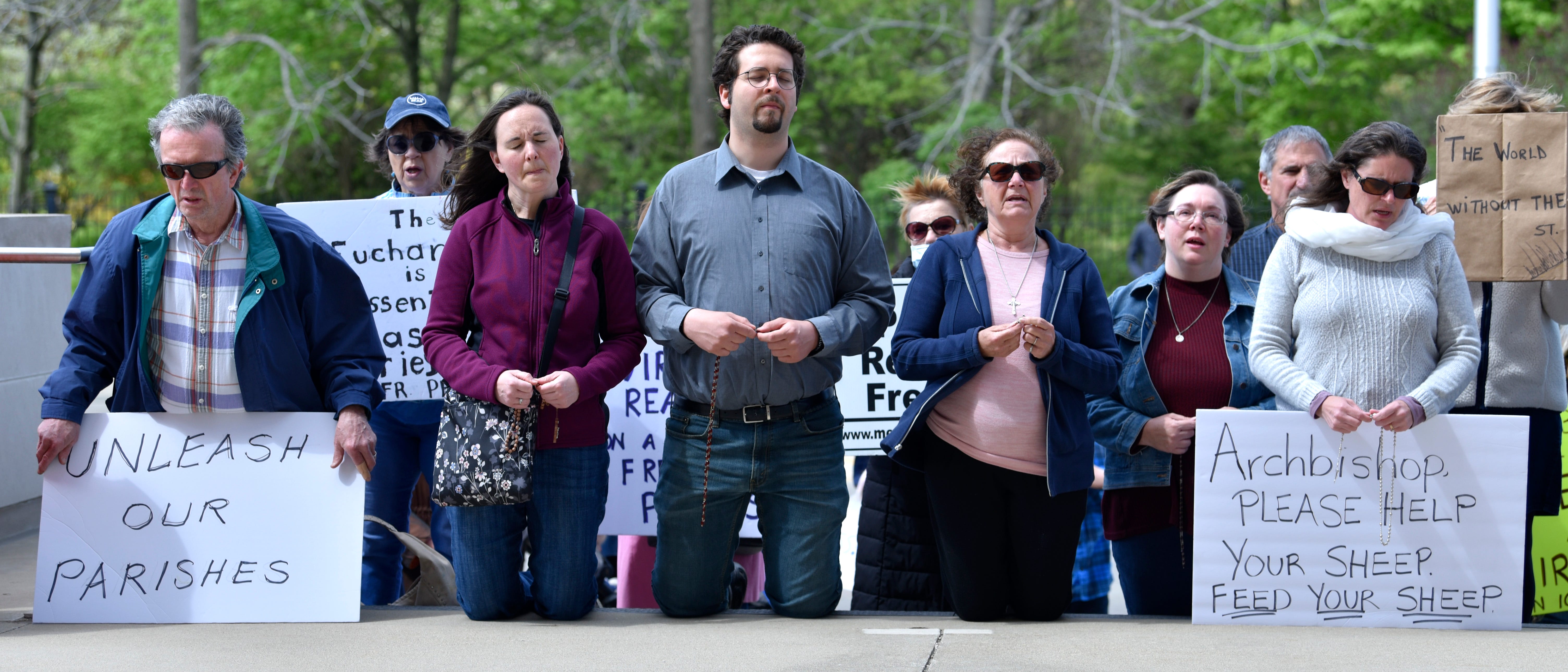Michigan church leaders sue to stop Whitmer's stay-home order
 Beth LeBlanc
Beth LeBlancThree Michigan church leaders, including the state House speaker’s father, filed suit Wednesday against Gov. Gretchen Whitmer’s stay home order in federal court, arguing it violated their First Amendment rights to free exercise and to assemble.
Stanley “Rusty” Chatfield III, pastor for Northern Michigan Baptist Bible Church in Burt Lake, filed suit in Grand Rapids federal court the same day his son, House Speaker Lee Chatfield, filed suit in state court to challenge the governor’s emergency powers.
Joining Rusty Chatfield in the suit are Southfield-based Word of Faith Christian Center Church Bishop Keith Butler, Sturgis-based Whole Life Church Pastor Chuck Vizthum, and Tim Schmig, executive director at Michigan Association of Christian Schools. Butler is a former Detroit City Council member who unsuccessfully sought the Republican U.S. Senate nomination in 2006.

The churches are being represented by the conservative Great Lakes Justice Center.
“Churches are essential to the health and well-being of everyone," lawyer David Kallman said in a statement on the lawsuit. "If Walmart and Home Depot can open and sell goods to customers while following CDC guidelines, surely churches can do the same.”
Chatfield, R-Levering, said in a Thursday statement that he doesn't know "too much about it."
"My dad mentioned a few days ago that he was working with a group of pastors, and the next I heard about it was from the media yesterday," Chatfield said. "I told him I wish him luck."
Whitmer’s office said the Democratic governor does not comment on pending litigation.
Various lawsuits have been filed against Whitmer's executive orders in recent weeks, but no injunctions, preliminary or otherwise, have been granted that would stop the order.
Early in the emergency, Whitmer exempted churches from penalties related to bans on assemblies but that exemption doesn’t extend to individuals attending services, the lawsuit said.
The exemption “merely adorns the Constitution with a fig leaf and does not protect individuals or change the clear language of the order prohibiting any religious services,” the lawsuit said.
In addition to violations of their First Amendment rights, the churches also argue the governor’s executive orders are unconstitutionally vague, lack due process and ignore the role of the Legislature.
Both the 1945 Emergency Powers Act and 1976 Emergency Management Act violate the Separation of Powers clause in the state constitution, the lawsuit argued.
“Allowing one person to wield absolute power is not a republican form of government, it is tyranny,” the lawsuit said.
The lawsuit asks a judge to rule as unconstitutional the governor’s executive orders, the Emergency Powers Act and the Emergency Management Act. The lawsuit also asks the judge to ban law enforcement from enforcing the executive orders unless they receive legislative approval.
The Word of Faith Christian Center in Southfield can hold up to 4,000 people, according to the lawsuit, which would allow the church to hold multiple services while observing social distancing. The church also plans to deep-clean between services, increase ventilation and require attendees to wear masks and gloves.
Whole Life Church and Northern Michigan Baptist Bible Church also plan to put in place similar precautions, according to the lawsuit.
The executive orders “are not generally applicable because they grant local authorities unbridled discretion, enforced via an individualized subjective assessment, to prohibit plaintiff’s religious exercise while permitting other individuals or entities to engage in non-religious practices,” the lawsuit said.
Part of the lawsuit’s arguments parallel those from the GOP-led Legislature, which has argued the governor does not have the authority to extend her state of emergency past April 30 without legislative approval.
Whitmer has argued she has that authority under a 1945 law allows the governor to declare a state of emergency and have emergency powers without the 28-day time limit.
eleblanc@detroitnews.com